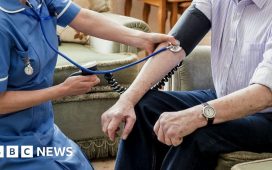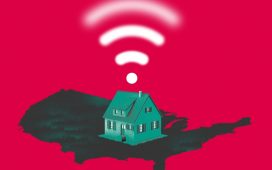The latest pollen forecast, issued by the Met Office, shows moderate levels across much of the UK starting today (April 2). In some parts, as the weekend nears, areas like Wales and the mid-to-south of England will experience high levels.
Strictly star and practising GP Dr Punam Krishan previously took to social media ahead of the allergy season to share some of the go-to tips that she’ll often give to her own patients. She said: “Antihistamines are the best place to start.
“You can buy [these] over the counter alongside things like decongestants and nasal sprays. But, if those over the counter medications aren’t working then speak to your doctor.” She added: “We can actually prescribe different medications and prescribe higher doses of antihistamines than what you can buy over the counter.”
The medic went on to explain medicine is not the only solution to limit how badly you suffer this summer. She said there’s one crucial thing that will be able to stop your nose and eyes streaming.
She said: “The most important thing is to look for ways to stop the allergen (which in hay fever’s case is usually grass pollen). You want to stop that from getting into your system in the first place.
“Close your windows, especially in the mornings and in the evenings when pollen level counts are at their highest. Doing this will immediately stop the pollen from getting into your house.”
Dr Punam also suggested that people limit outdoor exercise at these times for the same reason. But if this is not something you can avoid, there’s one subtle trick that might help block you up—in a good way.
She said: “Before you go out, put a bit of petroleum jelly (think Vaseline) around your nostrils and under your eyes. The whole point of this is that pollen will stick to that and stop it from getting into your airways. It’ll help reduce those horrible symptoms.”
The doctor, who regularly discusses health matters on BBC‘s Morning Live, added that a shower and load of laundry are also essential if you’ve been out and ‘exposed’ to pollen. Leaving these microparticles of pollen stuck to your clothes, body, and hair can “really irritate you” overnight.
Finally, she claimed drinking your favourite summer tipple could be stopping your medication from working as alcohol contains histamines. This could cancel out the work of any anti-histamines – or potentially ake your symptoms feel worse.
What is hay fever?
According to the NHS, Hay fever is a common allergy that causes sneezing, coughing and itchy eyes. The allergic reaction is caused by the fine powder that plants produce, called pollen, when it comes into contact with your mouth, nose, eyes and throat.
Symptoms are usually worse between late March and September, especially when it’s warm, humid and windy. This means we’re just entering the beginning of the season, which usually lasts for a few months.
Symptoms of hay fever include:
- sneezing and coughing
- a runny or blocked nose
- itchy, red or watery eyes
- itchy throat, mouth, nose and ears
- loss of smell
- pain around the sides of your head and your forehead
- headache
- feeling tired
Hay fever affects almost 10 million people in England, of all ages. This equates to almost one in four adults and 1 in 10 children, according to the Met Office, with the number of sufferers is rising, year on year.
You can keep up to date for the week ahead using the Met Office’s website dedicated pollen forecast here. You’re able to filter by your specific region and know what type of pollen is at its highest.











